The MAXQDA International Conference (MQIC) is the biggest MAXQDA event of the year. Held in Berlin, Germany, the MQIC brings together qualitative and mixed methods researchers from all over the world and is designed to help you – the researcher, the teacher, the student – improve your understanding of MAXQDA, effectively incorporate MAXQDA into your research design, and develop new approaches for data analysis.

The MQIC 2018 was our most exciting conference yet! 156 participants in 38 disciplines from 80 institutions in 18 countries made it our largest and most diverse event to date. Participants were involved in 12 workshops, 30 Spotlight Sessions, 2 keynote addresses, 5 Best Practice Roundtables, and the Poster Session, which featured 19 real-world examples of MAXQDA-based research and teaching. While the conference and the accompanying workshops helped deepen the researchers’ understanding and application of MAXQDA in general, trainers and staff also addressed specific methodological questions – both in a classroom setting and in informal one-on-one discussions.
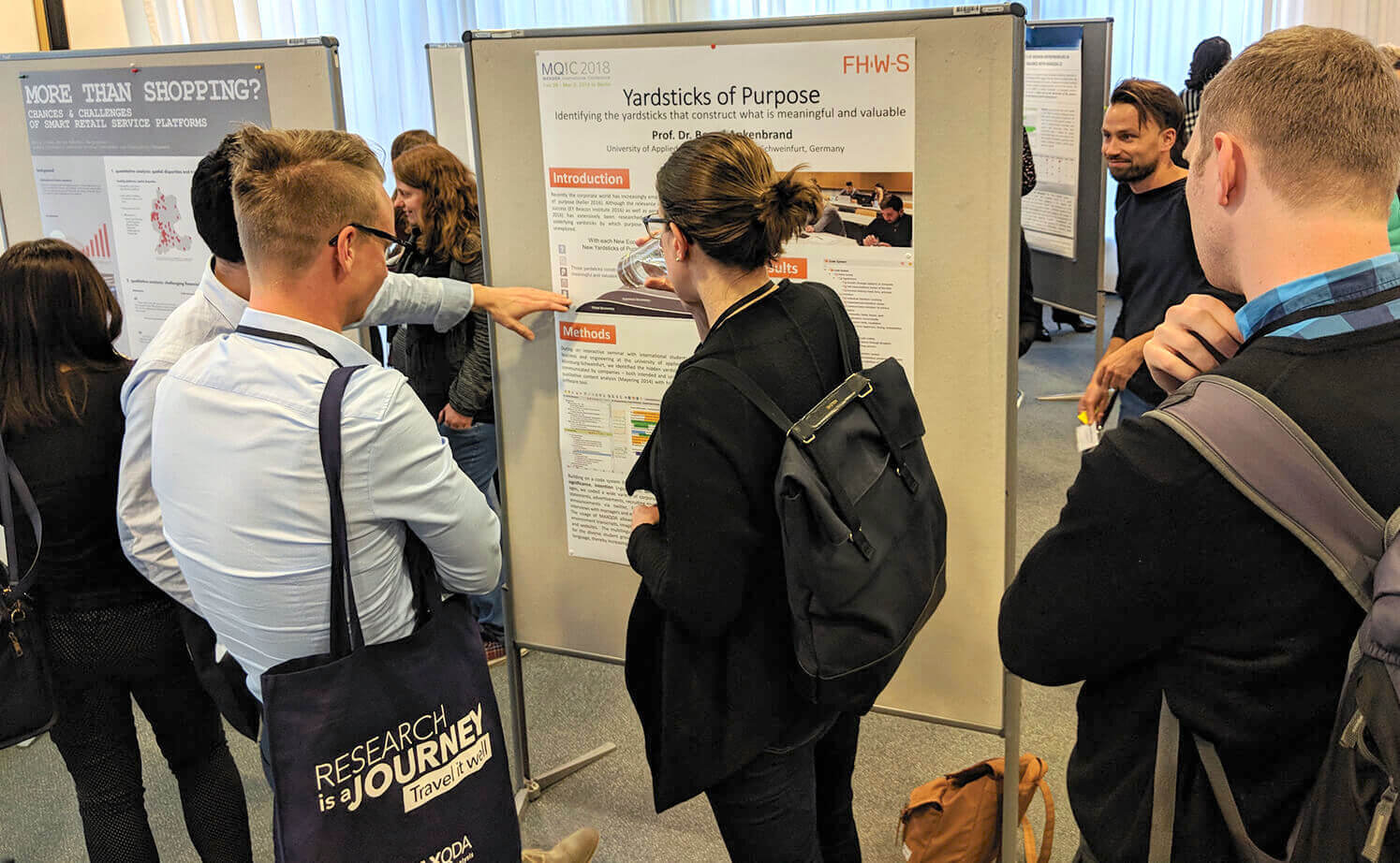
Methodological Keynote
Dr. Donna M. Mertens, a Professor Emeritus from Gallaudet University in Washington, DC, gave an inspiring keynote speech on the importance of mixed methods research in the challenging political, social, and economic climate in which much of our research takes place. Merten’s experience in the field has led her to become an advocate of the importance of working WITH the community in which one is conducting research. Dr. Mertens raised questions such as: How can we use mixed methods to identify cultural norms, beliefs, and dimensions of diversity? How can researchers engage with the community they are doing research WITH? And how can we make different versions of reality visible? Mertens argued that transformative mixed methods research can be a driving force behind this paradigm shift.
Prof. em. Donna M. Mertens outlined a path for transformative mixed methods research. Each stage integrates coalition-building between the researcher and their research partners, all the way from a study’s design, to how to use the findings for transformative purposes. Research methods, such as literature reviews combined with consulting, followed by contextual analyses through focus groups and GIS mapping, for example, allow the researcher to examine the quality of relationships throughout the entire process and capture the complexity of the social and ethical issues facing us today. Transformative mixed methods not only acknowledge cultural norms and beliefs within a community but also identify diversity and address discrimination in associated power structures. Mertens’ approach, therefore, focuses on authentic engagement but also shows how such methods can strengthen the credibility of evidence by including cultural perspectives of diverse stakeholders and their experiences, which will ultimately contribute to the changes in our understandings of what is real. We, as researchers, can orient our work towards constructive action. We just need to find the courage to do so.
Over the course of her long career, Prof. em. Mertens’ focus on transformative mixed methods inquiry in diverse communities has led her to conduct and consult on evaluations in Kyrgyzstan, Korea, Sri Lanka, Nepal, India, and many more. She also has over 30 years of experience in teaching research methodology as a lecturer as well as the author of several pioneering works on the topic, and has served as president of the American Evaluation Association, founding Board Member of the International Association for Mixed Methods Research and editor of the Journal of Mixed Methods Research.

Developer Keynote
Not only is Berlin a world-class destination city for travelers and scholars alike, but it is also home to VERBI Software, the developers of MAXQDA. This year’s developer keynote provided a behind-the-scenes look at the development and production of MAXQDA 2018.
Isabel Kuckartz, Head of Business Development, provided a high-level overview of the process behind the new release, including the results of the 2017 MAXQDA User Survey, which, for example, showed that the top functions used in MAXQDA are visual tools and summary functions, and that our community most often finds help through video tutorials and the online handbook. Kuckartz also highlighted the improvements found in the new version of MAXQDA, such as the new ribbon-style menu bar, improvements to transcriptions and MAXMaps, as well as Paraphrases – a completely new tool that lets users summarize sections of their data in their own words. Users can also get in touch with the MAXQDA development team through the newly-integrated feedback and suggestion function directly into the welcome screen of the software. Alongside the more than 60 new features, MAXQDA is more user-friendly than ever, with information buttons located throughout the software which lead to simple step-by-step instructions in the newly-designed online manuals, as well as a universal undo button.
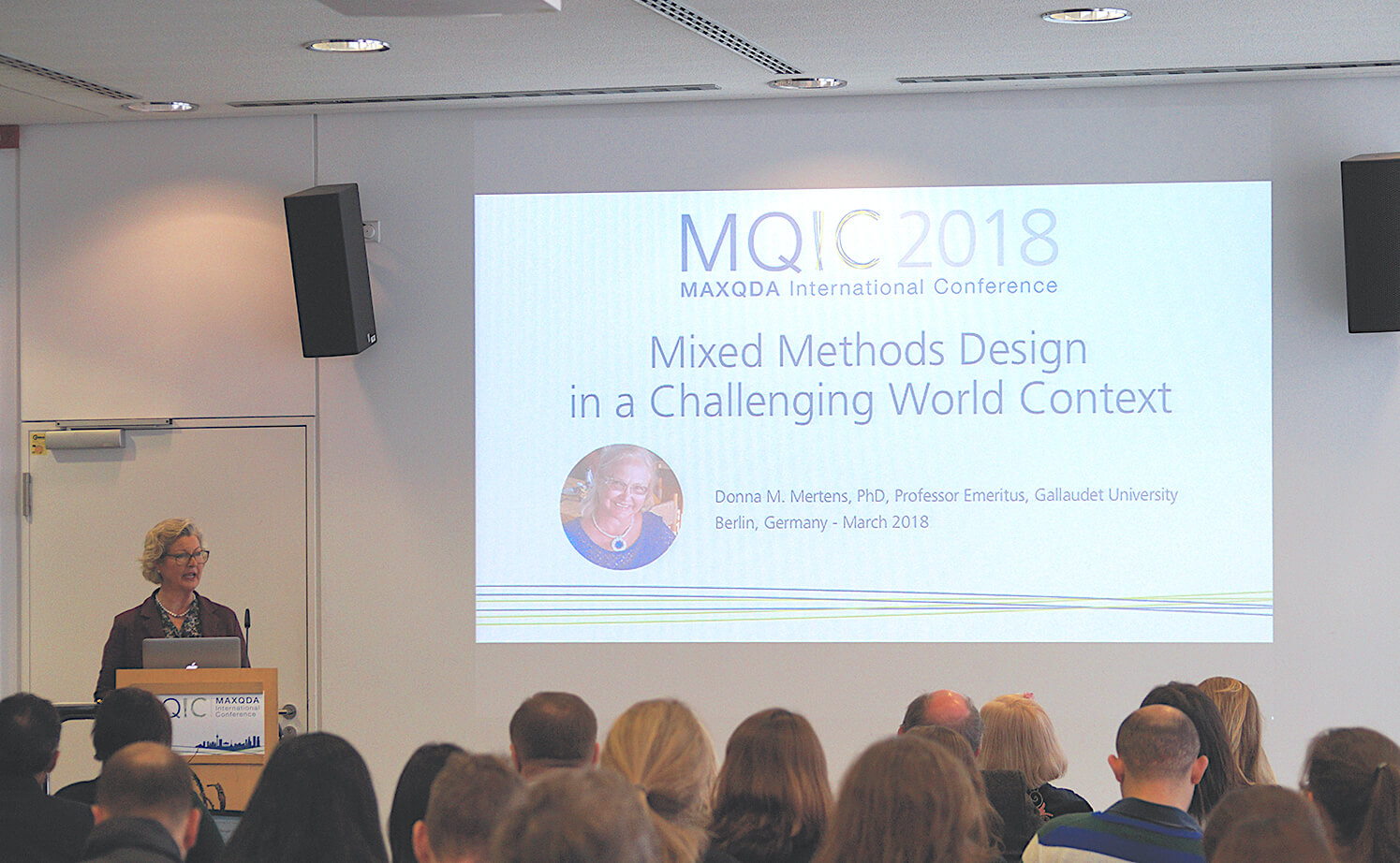
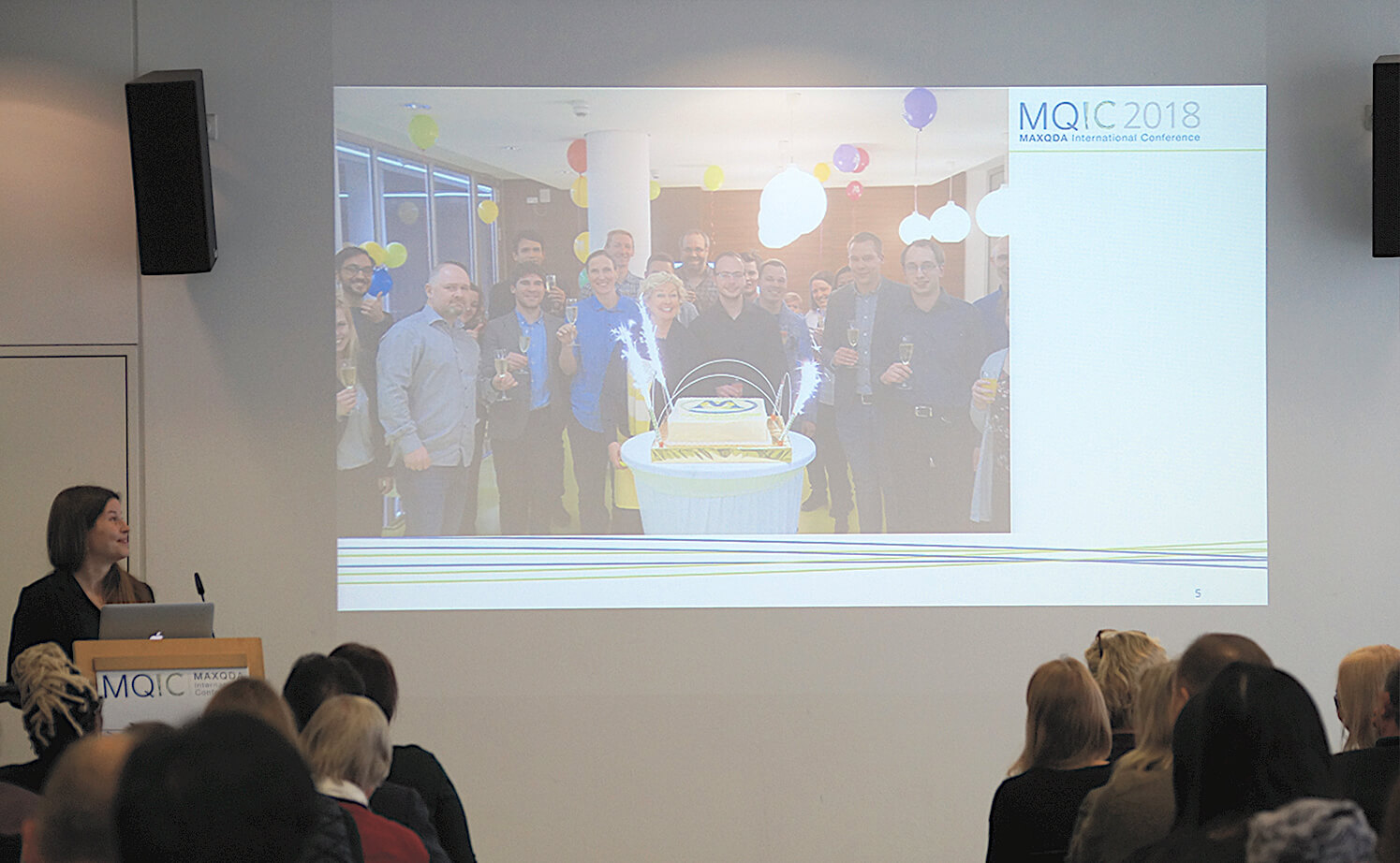
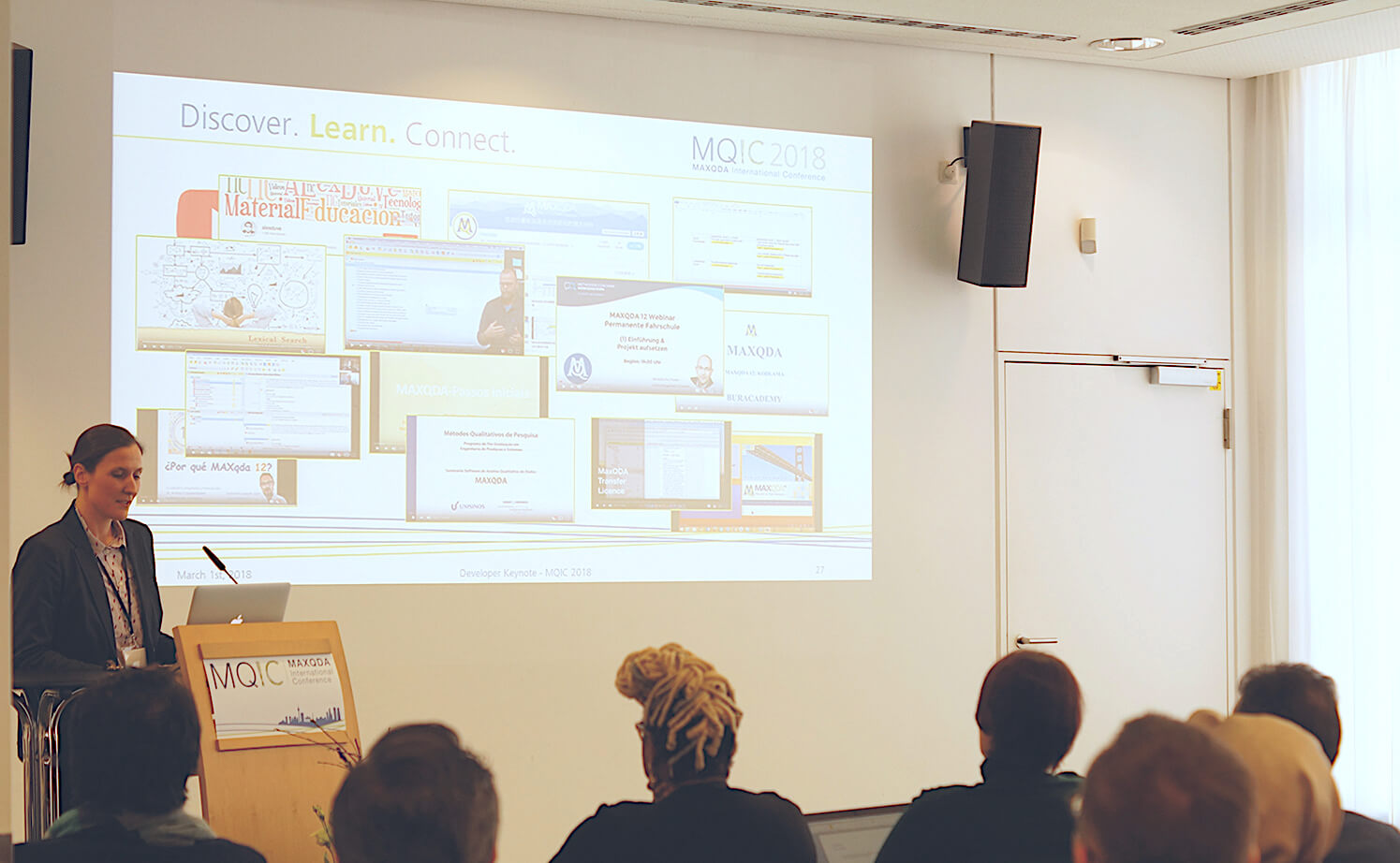
Julia Gerson, Chief Communications Officer, gave a recap of the ways in which MAXQDA stays in touch with its users in creative and significant ways. The 2017 #PictureYourResearch MAXQDA Photo Contest and this regularly updated MAXQDA Research Blog show the diverse contexts in which MAXQDA users conduct their research. MAXQDA also continues to expand its global reach with the help of a multilingual interface and support literature. In turn, our diverse international community is giving back by sharing their knowledge on platforms such as YouTube, where they feature tutorials in their native languages. The MAXQDA Trainer Network also continues to grow. Not only were there 15 trainers at the MQIC 2018, but a total of 126 educators and scholars are now Professional MAXQDA Trainers who hold training sessions in 35 countries. If you would like to become a MAXQDA trainer, please email us at training@maxqda.com/de and we will help you get the application process started!
MAXQDA is also continuing its effort to support student researchers from around the globe with the $1,300 #ResearchforChange Grant. This semester’s grant is focused on Community-Engaged Research and applications are open until June 1st, 2018.
Workshops
As usual, in-depth workshops led by official MAXQDA trainers bookended the MQIC conference. These full- and half-day workshops gave users the opportunity to focus on various aspects of MAXQDA and learn how to integrate them into their research process. The workshops are led by trainers who are experts in their respective fields and experienced MAXQDA teachers. Offered in both English and German, content ranged from beginner-friendly overviews on topics such as Qualitative Text Analysis and Smart Use of Coding Tools, to advanced workshops on Mixed Methods, Focus Group Analysis or Teamwork in MAXQDA. The long format allows for plenty of time not only to gain new insights but to test the practical application of MAXQDA live and ask our trainers methodological or technological questions.
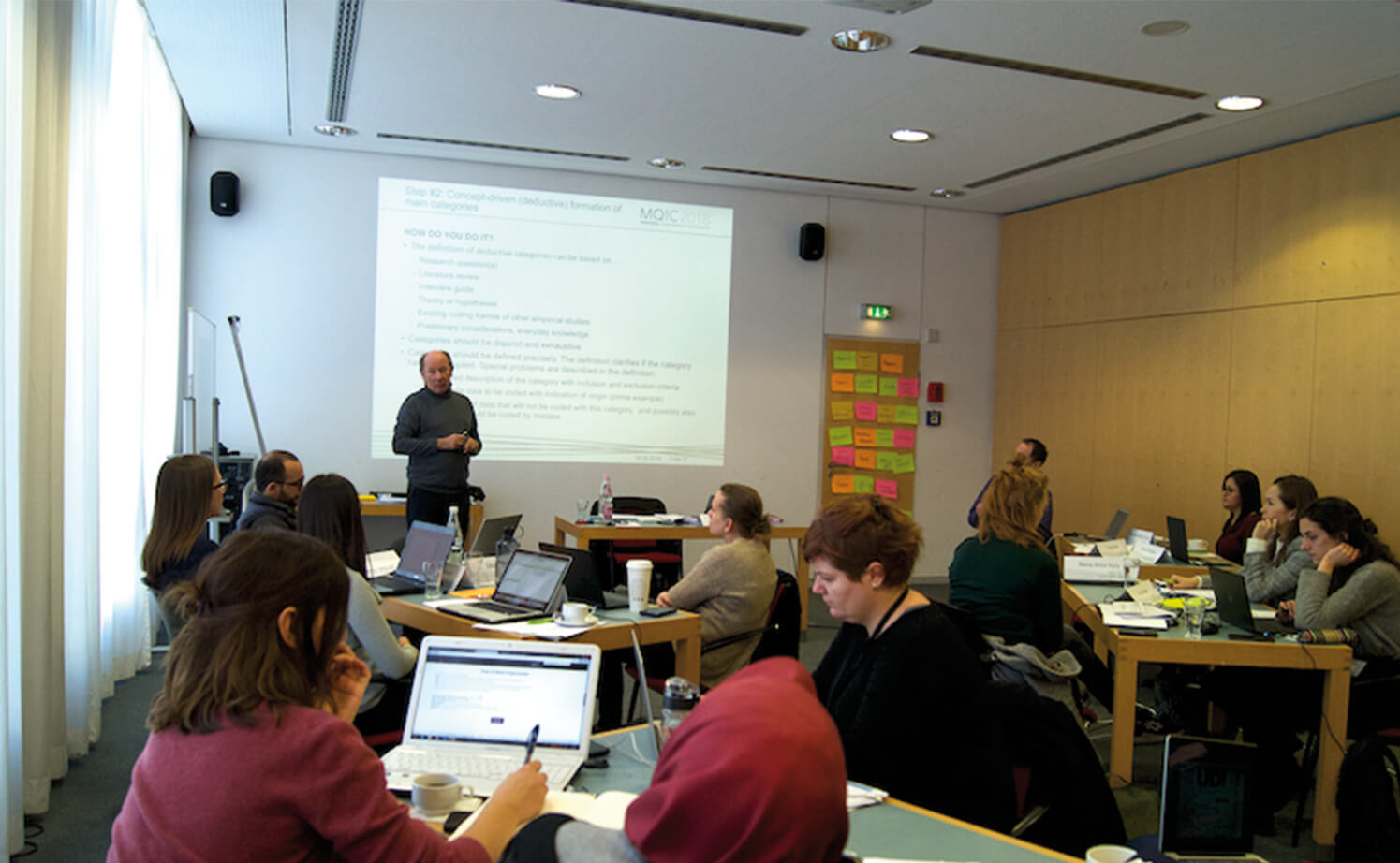
Spotlight Sessions
Spotlight sessions form the backbone of the MQIC and make this conference unique in the QDA field. These 30-minute practical introductions to core MAXQDA features – transcription, multimedia analysis, statistical analysis, and more – are great for users of all levels. This year’s conference offered the widest range and highest number of mini-workshops to-date! 30 Spotlight Sessions in both English and German, were available to all participants, even if they did not attend a workshop. This flexible conference composition allows every attendee to tailor their conference experience to their own needs, regardless of skill-level, methodological focus or budget. We have already received a lot of positive feedback regarding the new format and we are pleased to announce that a large selection of Spotlight Sessions will definitely be a part of the next MQIC!
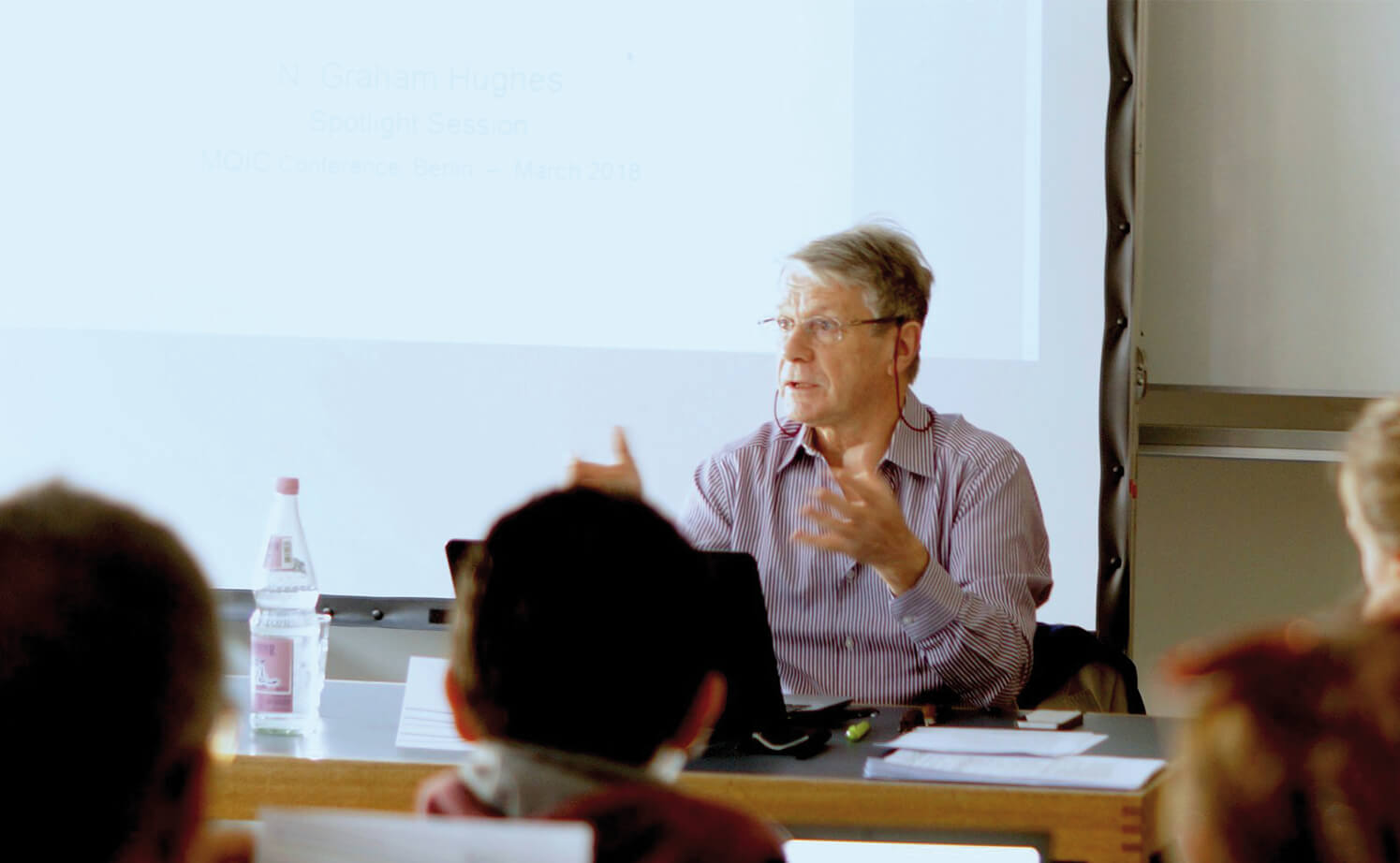
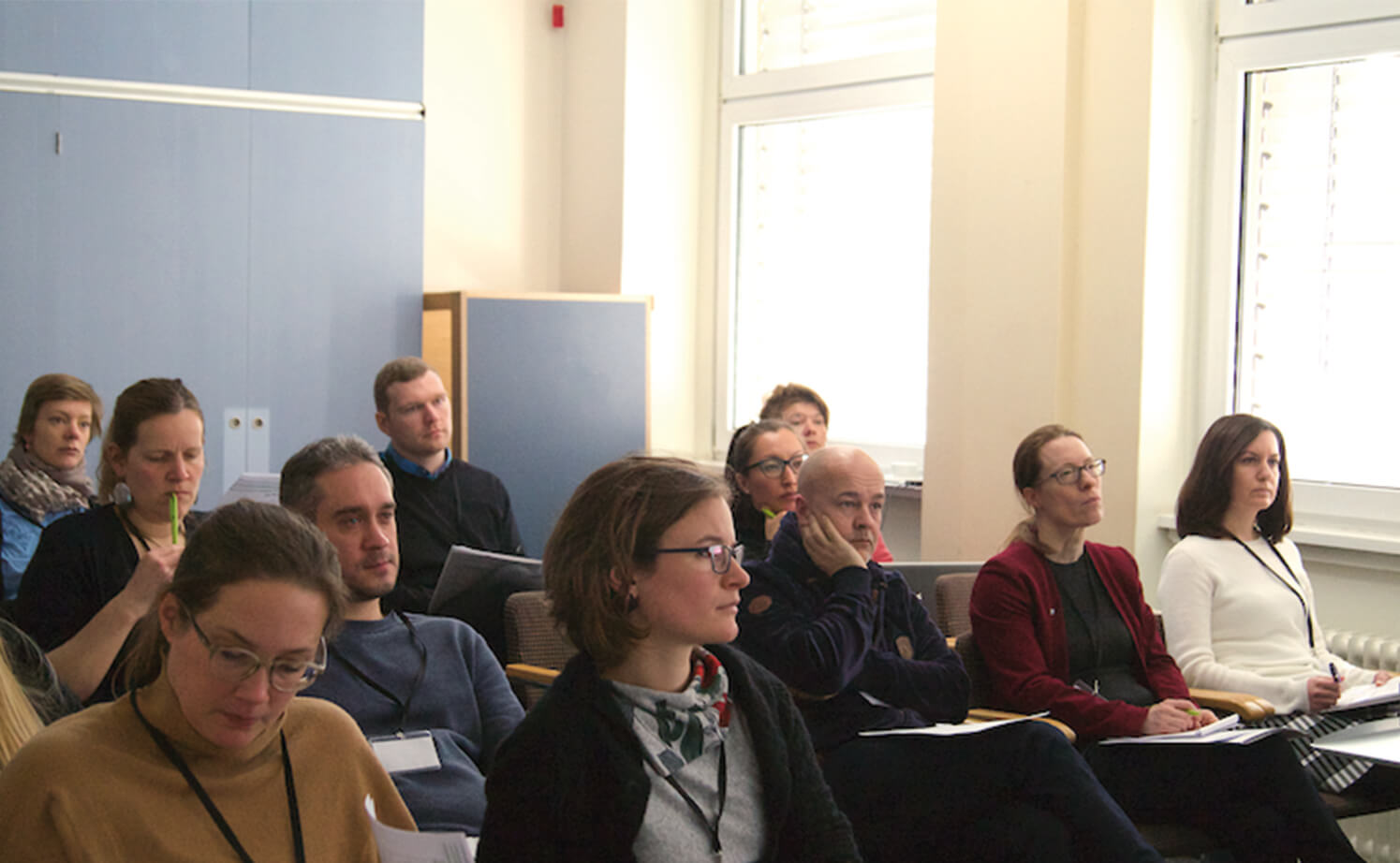
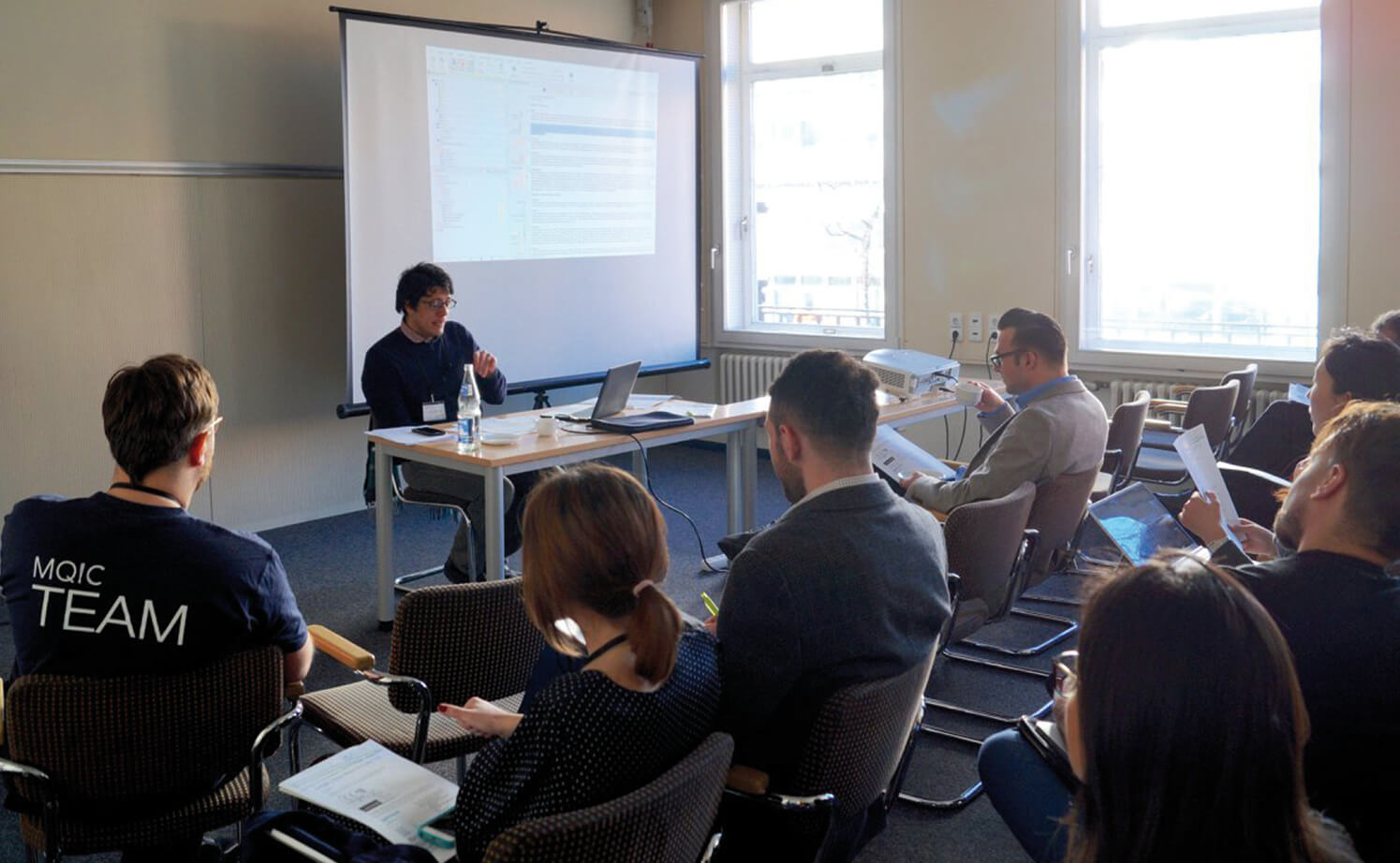
MAXQDA Best Practice Roundtables
Best Practice Roundtables provide a lively format for discussing research questions, methodological approaches, and MAXQDA tips. This year, roundtables addressed the following 5 topics: Teaching and Learning MAXQDA, Implementing Research Methods, Audio and Video Analysis, Visual Tools, Exports and Reports, and Technical Aspects of MAXQDA. While each of the five thematic roundtables set up in the main lecture hall was moderated by an expert on the topic, the participants were encouraged to share their experiences with each other and move around the room, leading to a stimulating exchange of ideas in a relaxed environment. With this lateral approach to knowledge-exchange, we hope to widen the horizon of possible applications of MAXQDA, not only in theory and ideas but through reciprocal discussions of real-world scenarios.
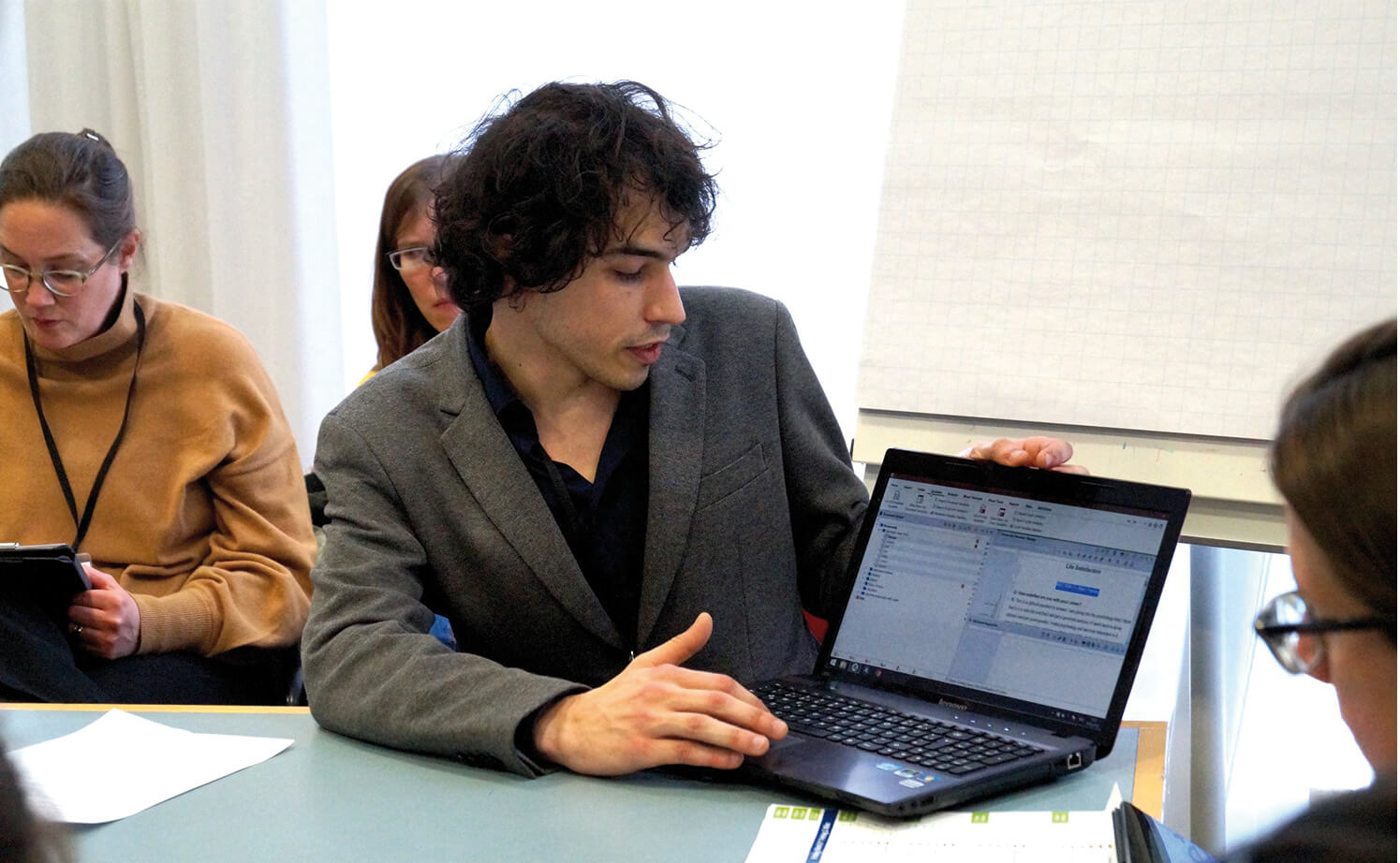
Poster Session
Congratulations to the winners of the MQIC 2018 poster prizes!
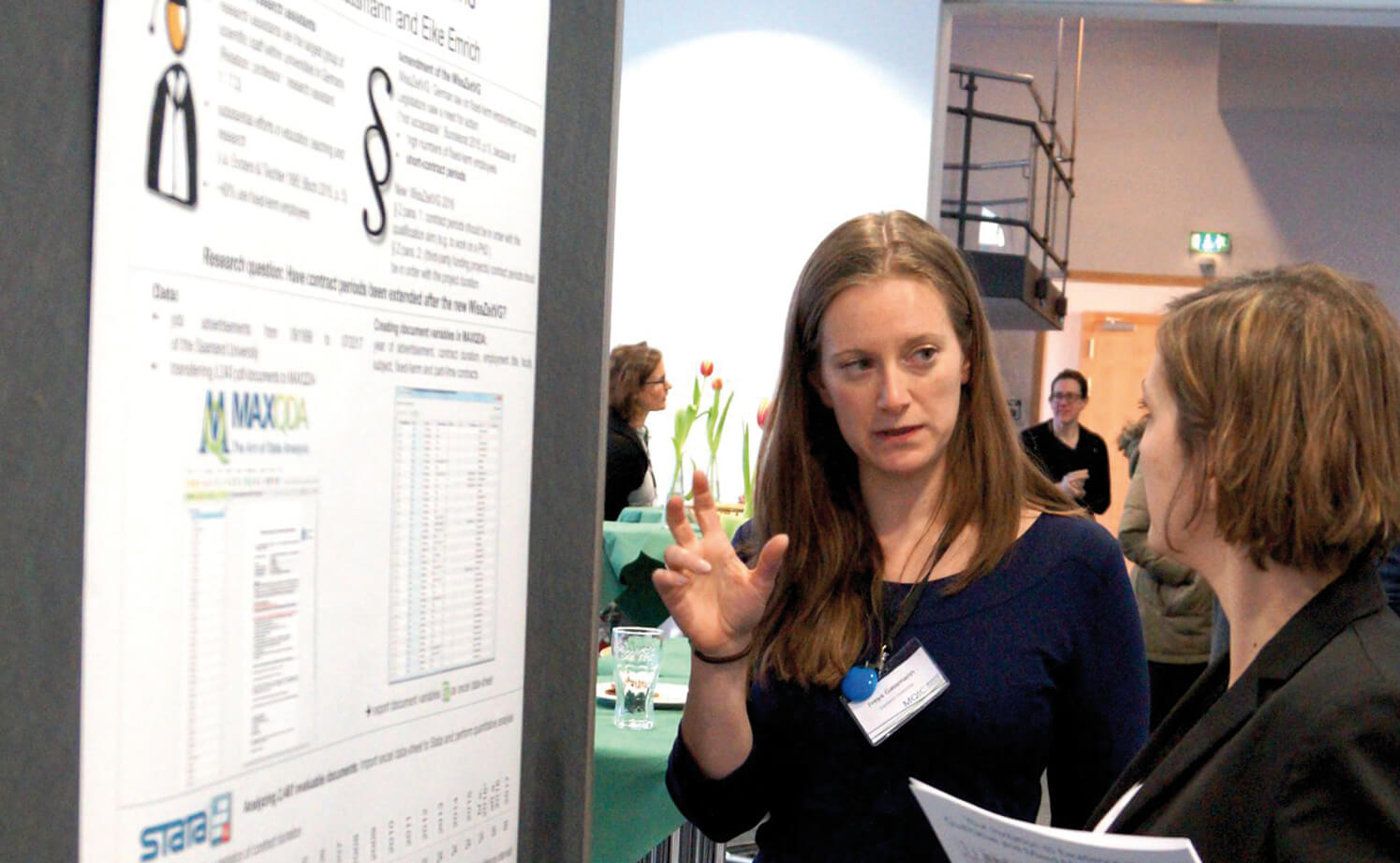
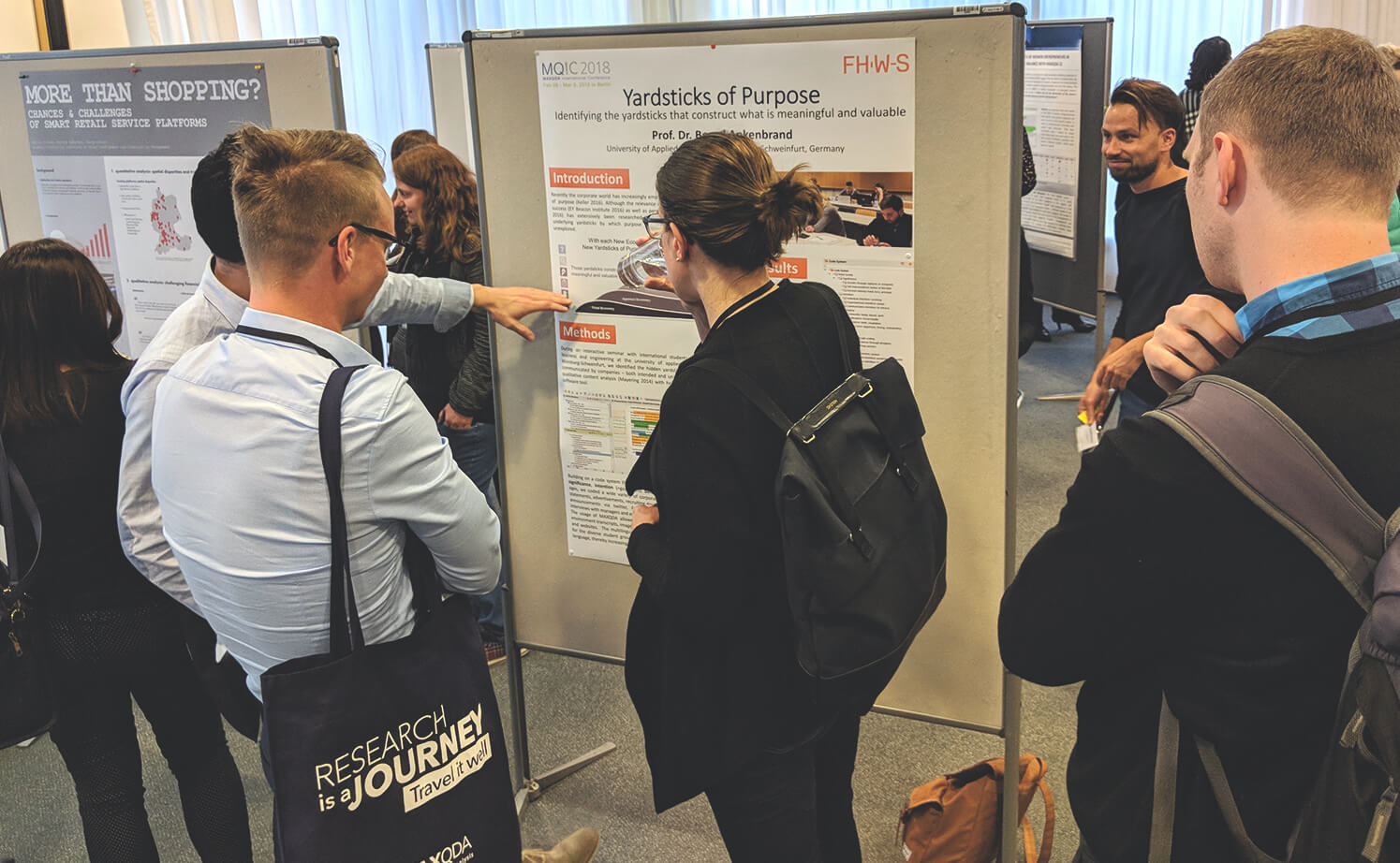
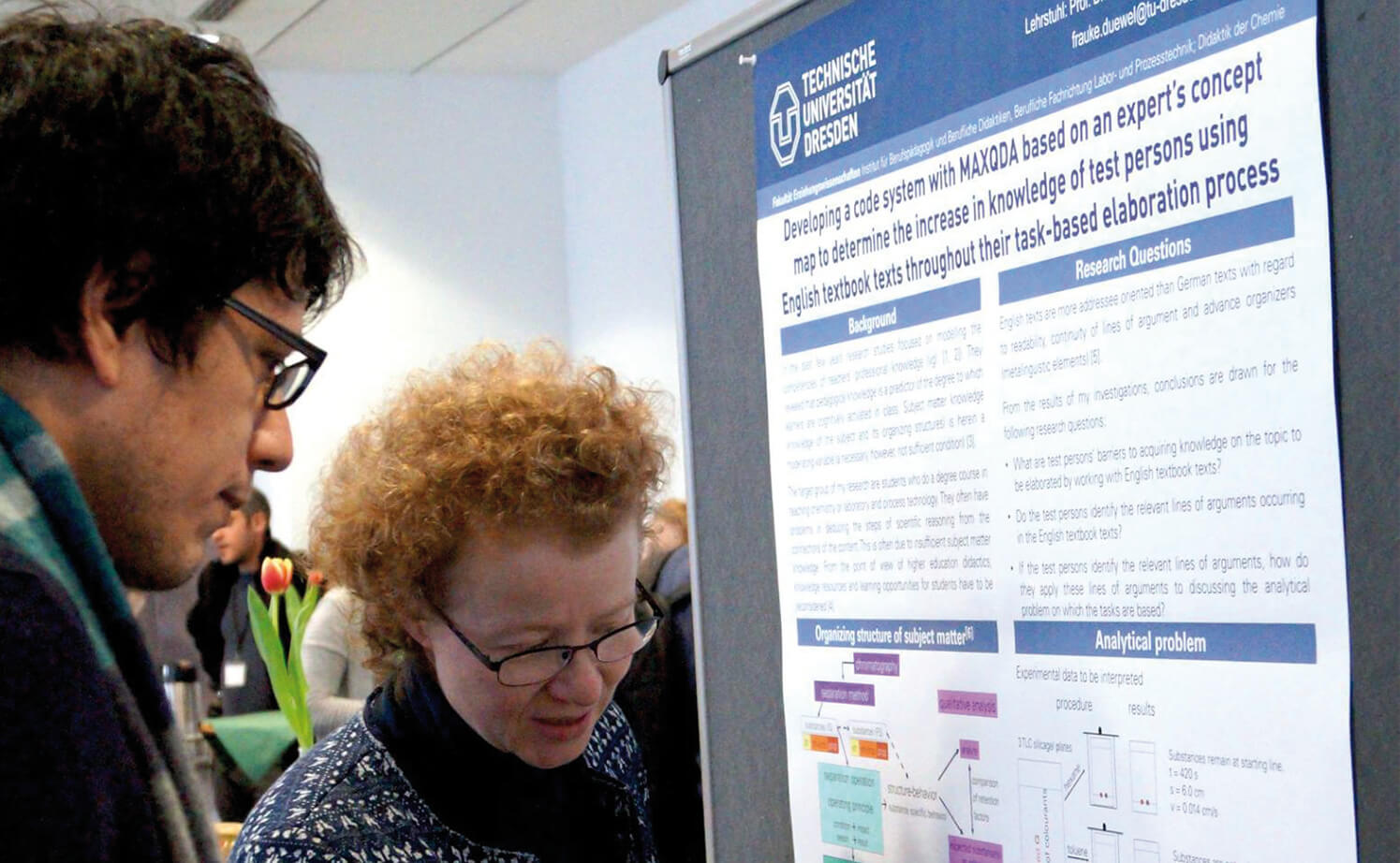
The Poster Session was also done a bit differently this year. For the first time in MQIC history, all of the accepted posters were displayed throughout the entire conference, not just a short period of time before the awards ceremony. This, again, allowed for the real-world examples to be the focal point of the conference. From the almost 30 submissions, 19 posters were featured in the MQIC Poster Session.
This year’s Best Poster Award went to Michael C. Gizzi, PhD, a professor at the Illinois State University for his poster titled, “Harnessing the power of MAXQDA for conducting judicial impact research”. Dr. Gizzi employed MAXQDA to analyze how US Supreme Court cases impact the lower courts with focus on the reliability of dog-sniffs. Dr. Gizzi’s research was not only current and relevant, but his poster also clearly displayed his theoretical development, category-building techniques, use of variables, and his logical use of a wide range of MAXQDA tools, such as summaries, KWIC, and MAXMaps.
In second place, Mag. Dr. Birgit Senft and Wakako Fushikida each earned an award for their posters on data visualization for the evaluation study “Bildungsberatung Kärnten” and an analysis of faculty members’ mindsets in higher education, respectively.
Submit a poster for the next MQIC and share your research with our global community!
Wine and Cheese Get-Together and other Networking Events
One of the top draws of the MQIC is the chance to meet researchers from a broad spectrum of backgrounds and disciplines. The regular breaks and communal events provided ample opportunities for mingling outside the classroom. The networking highlight of the MQIC 2018 was, as always, the Get-Together Event with wine and cheese, where participants and trainers could unwind after an action-packed day and make new connections in a relaxed and informal environment.
Such events are a great way to build new relationships and maintain past connections with colleagues working with the same tools in their research and teaching projects. New scholars have the chance to meet the experts, and those who are already familiar with MAXQDA can get insights into new ideas by meeting innovators face-to-face. We consider this networking energy to be the guiding force of the MQIC and our team was so pleased to have finally had the chance to meet you! Be sure to check out the MQIC 2018 Photo Gallery to see a selection of the best pictures taken during the conference.
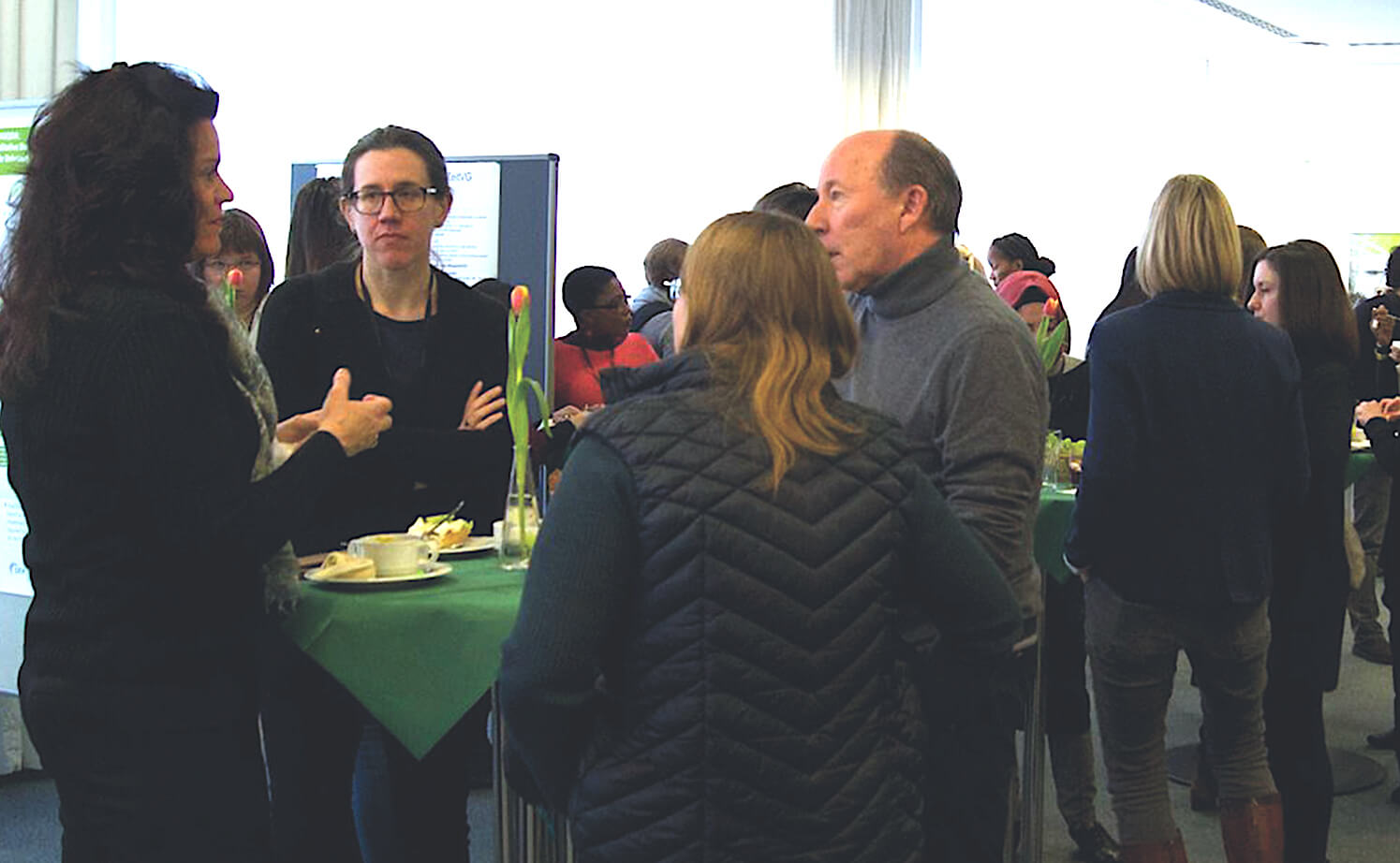
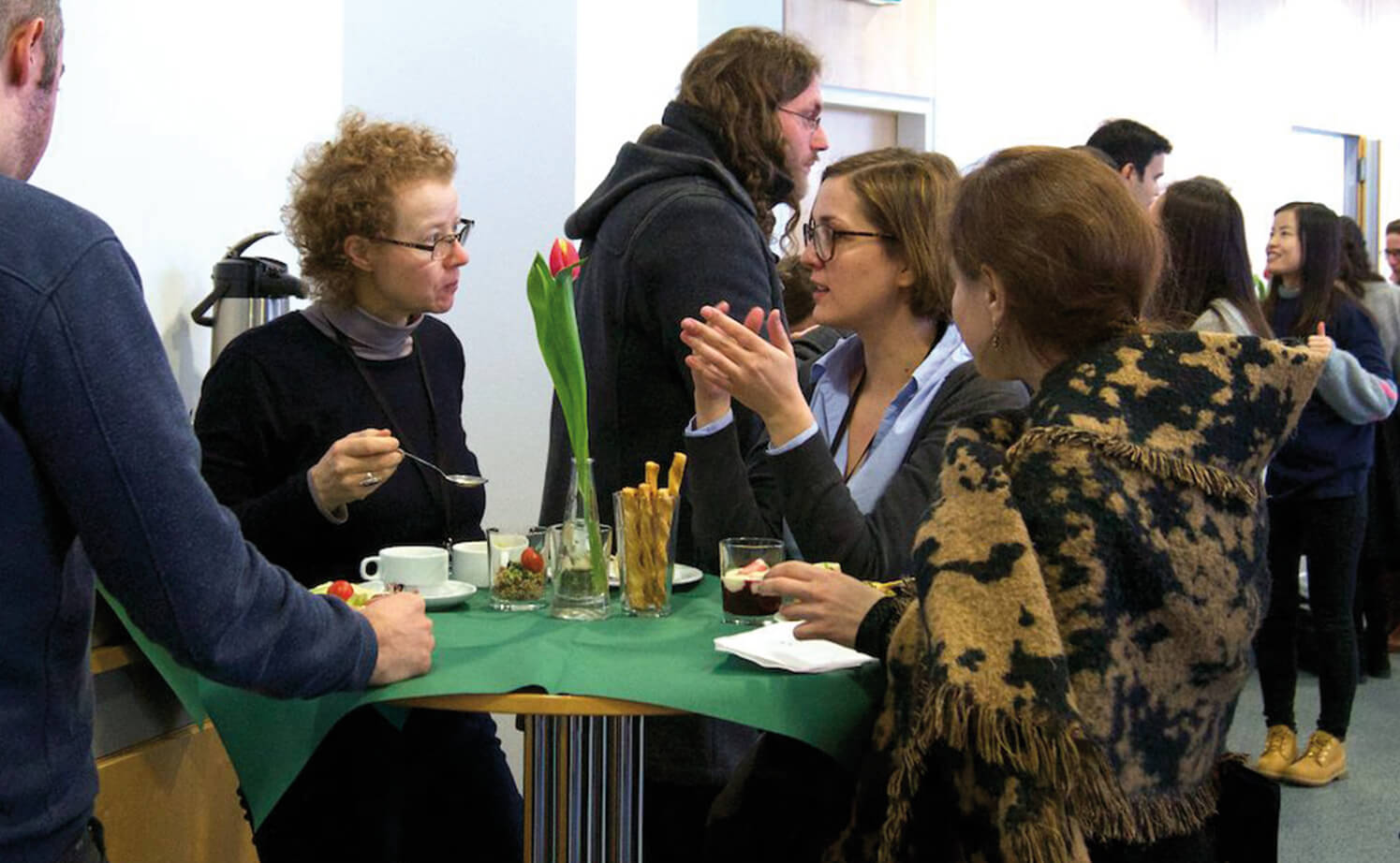
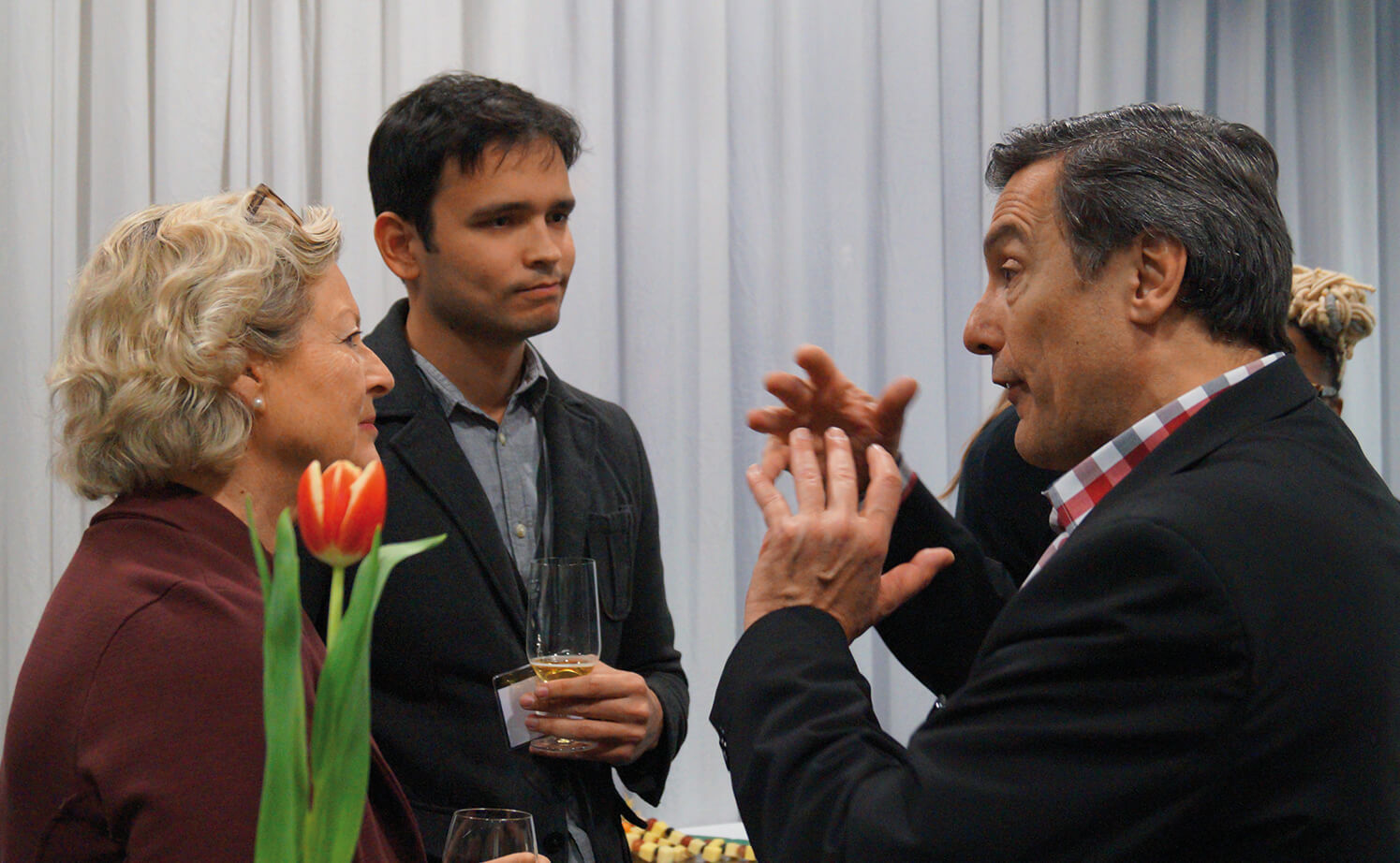
Special Thanks
To close this report, we would like to thank all of the conference participants as well as the trainers and speakers who traveled from near and far to share their expertise. If you were not able to attend this year’s conference, we hope that we can welcome you to another event soon! Be sure to subscribe to our MAXQDA Newsletter to be the first to know about events, the latest software updates, and our special programs like MAXQDA Research Grants and the annual Photo Contest! To attend an upcoming MAXQDA Training Session or contact a Professional MAXQDA Trainer in the meantime, please feel free to contact us at any time.
